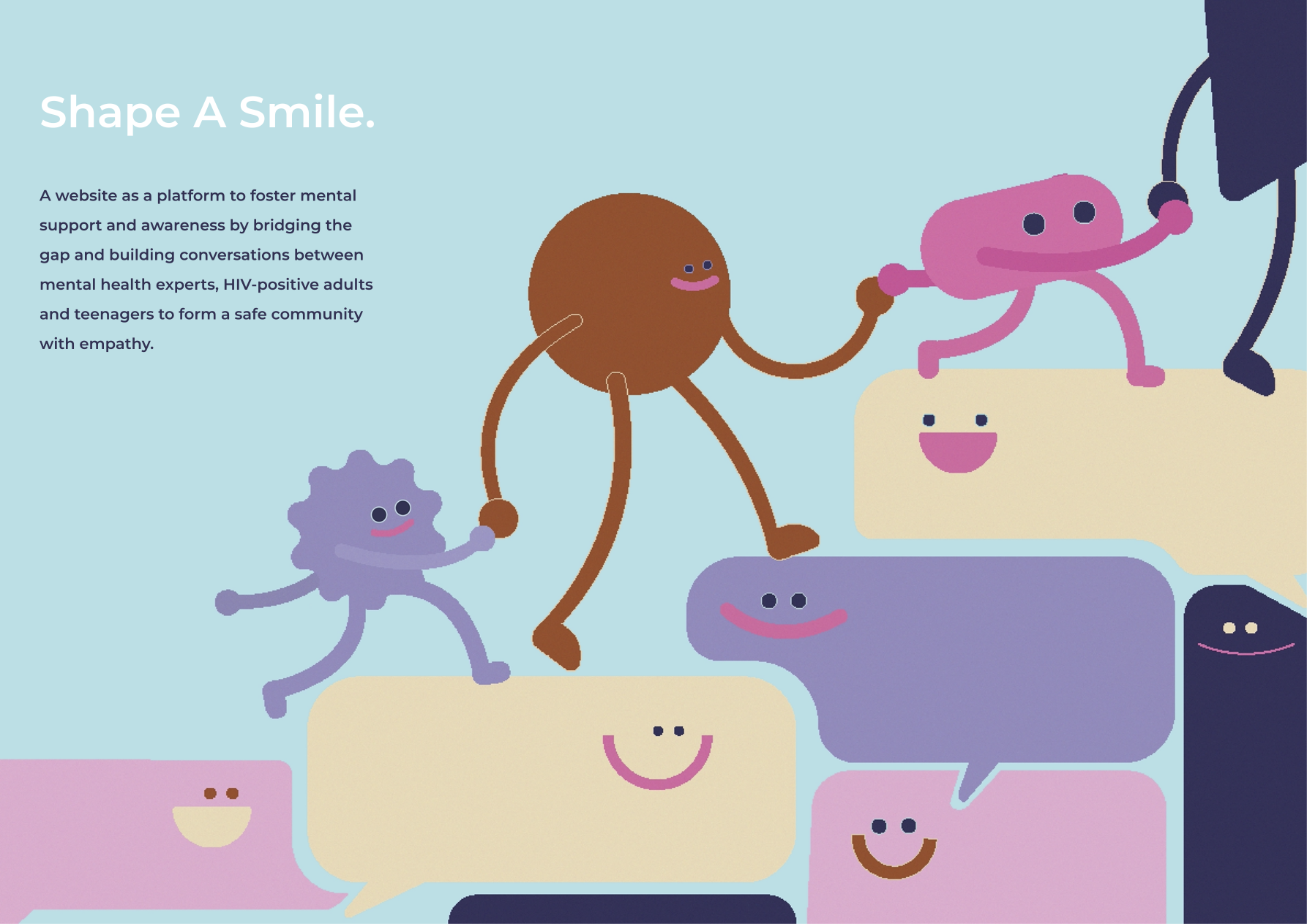
Year: 2021
Group members: Khushi Bafna, Jasmine Quek
Role: Researcher, Illustrator
Brief: How might we design systems that provide seamless and cost-effective access to quality health services for underserved communities? This is based on the RSA Brief 2021 and tackled as a group project.
Problem: In India, there is an HIV epidemic. They are the 3rd largest in the world, with 2.1 million people living with HIV. Just in 2017, there were 120,000 children infected with HIV in India. Children get infected by parent-to-child transmission at birth, hence this means that they did not have a choice in this. Since they have contracted HIV from their parents, their parents may be physically incapable of taking care of the child. In some cases, the parents die of HIV, leaving the child behind.
There are several implications of having HIV. As it is a lifelong illness, the child would have to undergo antiretroviral treatment and medication that has side effects, for life. Children with HIV will also have to deal with the social stigma that comes with the illness, often afraid of letting their peers know about their condition for fear of being ostracised. As such, their mental health is often compromised and hence, increases their chances of being diagnosed with a mental illness.







Approach: Shape A Smile is a platform where we create a safe community with empathy consisting of mental health experts, HIV-positive adults, and teenagers. This platform will provide the teenager's options to seek help from a professional or communicate with HIV-positive volunteers who have had similar experiences. The user will also be able to find relevant information regarding HIV and mental health to learn ways to cope with their illness.


